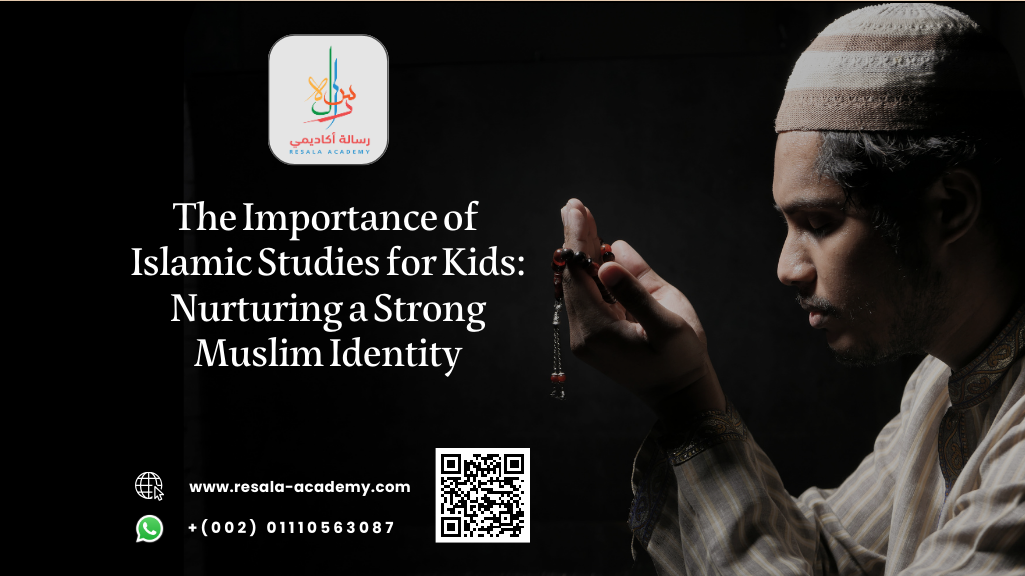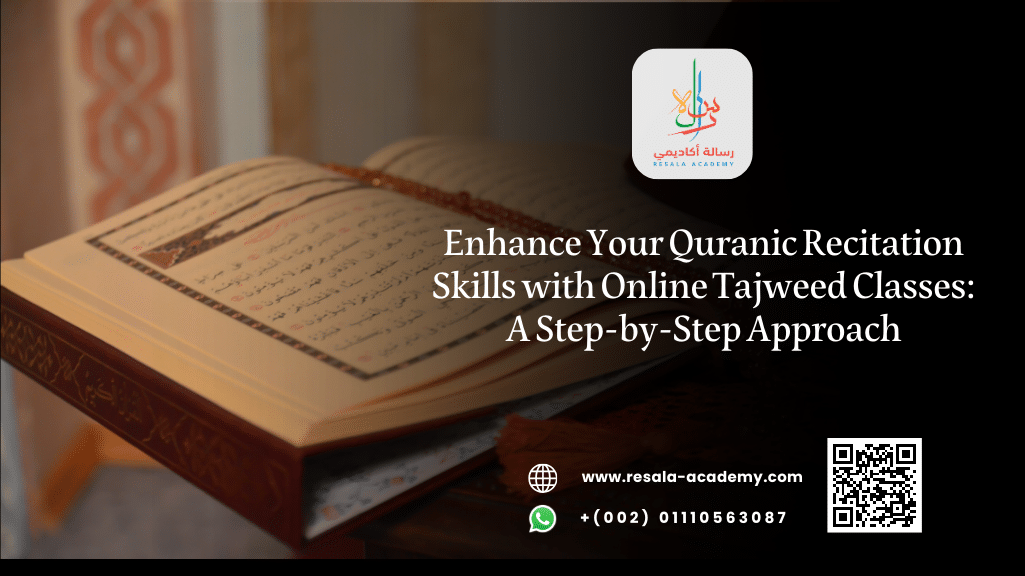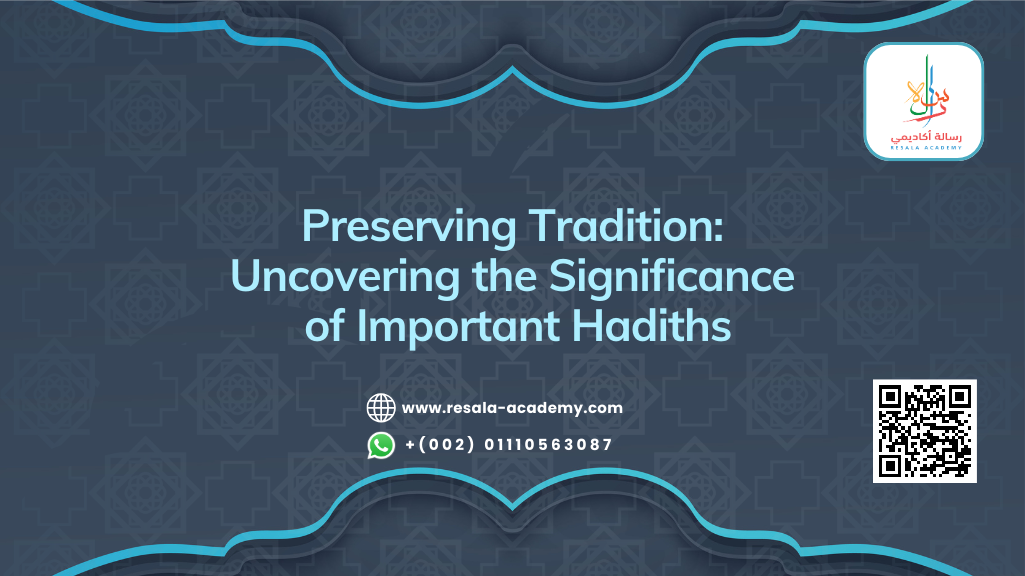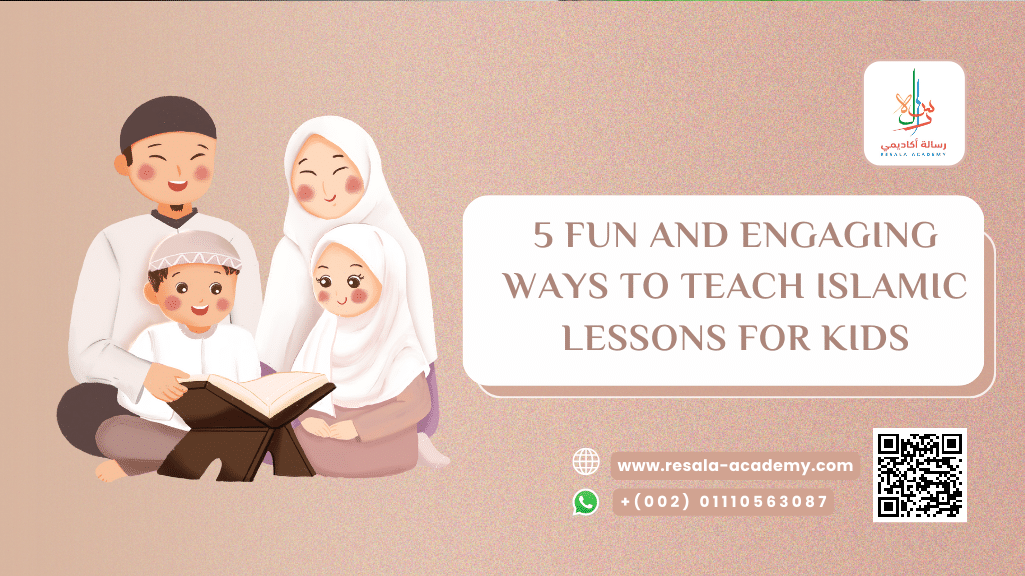Table of Contents
The Importance of Islamic Studies for Kids: Nurturing a Strong Muslim Identity
Welcome to our blog, where we explore the importance of Islamic studies for kids and how it plays a vital role in nurturing a strong Muslim identity. In today’s fast-paced world, it has become increasingly challenging for parents to instill religious values and teachings in their children. However, by providing them with a solid foundation in Islamic studies from an early age, we can equip them with the tools they need to navigate through life as proud Muslims. So let’s dive into this fascinating topic and discover why investing in Islamic education is crucial for your child’s spiritual growth and development!
Importance of Building a Strong Muslim Identity in Children
Our children are the future torchbearers of our faith. Building a strong Muslim identity in them is crucial for their spiritual and emotional well-being. It goes beyond simply teaching them Islamic rituals; it means equipping them with a deep understanding of Islam’s values, ethics, and principles. When children have a solid foundation in their faith, they become resilient against societal pressures and confidently embrace their religious beliefs.
A strong Muslim identity also helps children navigate through the challenges of living in a diverse society while staying true to their beliefs. It provides them with a sense of belonging to a larger community and fosters pride in being part of the global Ummah (Muslim community). This sense of identity acts as an anchor that guides them through life’s ups and downs, empowering them to make choices aligned with Islamic teachings.
Moreover, building a strong Muslim identity instills valuable character traits such as empathy, compassion, honesty, and integrity within our children. These qualities form the basis for developing well-rounded individuals who contribute positively to society. By nurturing their Islamic studies at home and school, we lay the groundwork for shaping future leaders who will actively work toward promoting peace, justice, and harmony – all essential aspects of Islam’s core teachings.
Challenges in Nurturing Islamic Studies for Kids at Home and School
Nurturing Islamic studies for kids can be an exciting journey, but it’s not without its challenges. One of the main obstacles parents and educators face is finding age-appropriate resources that effectively teach Islamic values and principles. It can be difficult to strike a balance between making the material engaging and ensuring it aligns with authentic teachings.
Another challenge is finding dedicated time to incorporate Islamic studies into children’s daily routines. With busy schedules filled with schoolwork, extracurricular activities, and social commitments, it can be challenging to carve out moments specifically for learning about Islam. Additionally, navigating conflicting priorities within secular educational settings may make it harder to consistently reinforce Muslim identity.
Moreover, addressing misconceptions or stereotypes about Islam can also pose a challenge when nurturing Islamic studies for kids. Children may encounter misinformation from peers or media outlets that promote negative narratives about Muslims. Educators and parents must foster open dialogues that encourage critical thinking skills and provide accurate insights into the beauty of Islam.
By recognizing these challenges ahead of time and actively seeking solutions, we can create supportive environments where our children thrive in their understanding of Islam. Together, we can overcome these hurdles by utilizing creative teaching methods like interactive games or incorporating technology-based resources that cater specifically to young learners’ needs.
Strategies for Nurturing Islamic Studies at Home
When it comes to nurturing Islamic studies at home, there are several strategies you can adopt to create a vibrant and engaging learning environment for your children. First and foremost, make sure to set aside dedicated time each day for Quranic recitation and memorization. Encourage your children to develop a love for the Quran by discussing its meanings and lessons with them.
Incorporate Islamic values into your daily routines. From mealtime prayers to bedtime stories that teach moral lessons from Islamic history, these small acts can have a profound impact on shaping your child’s Muslim identity.
Engage in Islamic activities as a family. Whether it’s participating in community service projects or celebrating Eid together, involving the whole family will reinforce the importance of Islam in their lives.
By implementing these strategies at home, you can ensure that your children receive a well-rounded education in Islamic studies while creating lasting memories centered around their faith.
Creating a Muslim-friendly Environment at Home
Creating a Muslim-friendly environment at home is essential for nurturing Islamic studies in children. It’s about creating an atmosphere that supports and reinforces their faith. So how can we do this? Surround your home with reminders of Islam, like beautiful Quranic verses or hadiths displayed on the walls. These visual cues will constantly remind your children about their identity as Muslims.
Incorporate Islamic practices into daily routines. Start the day with morning dua’as and end it with evening supplications before bed. This helps instill a sense of spirituality and connection to Allah throughout the day.
Engage in open discussions about Islam as a family. Encourage questions, share personal stories related to faith, and discuss current events from an Islamic perspective. By creating an open dialogue, you foster curiosity and deepen your understanding of Islam in your children’s minds.
By implementing these strategies, you create a Muslim-friendly environment where Islamic values are embraced and celebrated every day!
Incorporating Islamic Values into Daily Routines
One of the most effective ways to nurture Islamic studies for kids is by integrating Islamic values into their daily routines. This helps children understand and practice their faith in a practical and meaningful way.
Start the day with gratitude – teach your children to begin each morning by expressing gratitude to Allah for another beautiful day. Encourage them to say a simple prayer or recite verses from the Quran that emphasize thankfulness.
Throughout the day, remind your children about acts of kindness and compassion towards others. Teach them the importance of helping those in need, treating others with respect, and being honest in all their actions. These small gestures will help instill core Islamic values in their hearts.
Before bedtime, make it a habit to read stories or listen to audio recordings that highlight moral lessons from Islamic teachings. This not only provides an opportunity for quality family time but also reinforces important principles such as patience, forgiveness, and perseverance.
By incorporating Islamic values into daily routines, we can ensure that our children grow up with a strong foundation of faith and morals that will guide them throughout their lives.
Encouraging Regular Quran Recitation and Memorization
The Quran is not just a book; it’s a divine guide that provides us with wisdom, comfort, and guidance. As parents and educators, it’s crucial to instill the love for the Quran in our children’s hearts. Encourage them to regularly recite and memorize its verses.
Create a designated time each day for Quran study where the whole family can gather together. Make it an enjoyable experience by using colorful storybooks or digital apps that bring the stories of prophets to life. Let your child take turns leading the recitation during family gatherings or mosque visits – this will boost their confidence!
Reward their efforts with praises, stickers, or small treats as they progress in memorization. Utilize online resources like interactive websites or mobile apps that offer gamified learning experiences for kids.
By fostering regular Quran recitation and memorization at home, we are nurturing a strong connection between our children and their faith. This practice will not only strengthen their Islamic identity but also provide them with spiritual nourishment throughout their lives!
Engaging in Islamic Activities and Celebrations as a Family
As Muslims, it is important to foster a strong sense of community and religious identity within our families. One way to do this is by engaging in various Islamic activities together. Whether it’s attending Friday prayers at the mosque, participating in Ramadan fasting and Taraweeh prayers, or celebrating Eid al-Fitr and Eid al-Adha, these moments create lasting memories for our children.
By involving our kids in these activities, we not only teach them about their faith but also instill a love for Islam from an early age. We can organize family Quran recitation sessions where everyone takes turns reading verses aloud or have regular family discussions about the teachings of Prophet Muhammad (peace be upon him). These interactive experiences help deepen their understanding of Islam while strengthening the bond between family members.
Moreover, engaging in Islamic celebrations as a family provides an opportunity for children to connect with other Muslim families and build relationships within the community. Attending communal gatherings during Eid allows them to witness unity and solidarity among Muslims from different backgrounds. It reinforces their sense of belonging and helps them develop pride in being part of the larger Muslim ummah.
Remember that creating meaningful connections through shared Islamic activities doesn’t have to be limited to religious holidays alone. Even on ordinary days, you can engage your children by teaching them dua (supplication) before meals or bedtime or incorporating small acts of charity into your daily routine. By making Islam an integral part of our lives as families, we ensure that our children grow up with a strong foundation rooted in faith and values.
Choosing an Islamic School or Online Islamic Studies Program
When it comes to nurturing Islamic studies in children, choosing the right educational environment is crucial. Whether you opt for an Islamic school or an online program, finding a place that aligns with your values and goals is essential. Consider the curriculum offered by the institution – does it cover all aspects of Islamic teachings? Look into the qualifications and expertise of the teachers or instructors who will guide your child’s learning journey.
Additionally, take into account the flexibility and convenience of the program. Does it fit well with your family’s schedule? Is there room for customization based on your child’s individual needs? Don’t forget about community engagement opportunities. Does the school or program facilitate connections with other Muslim families? Building a strong network can enhance your child’s overall experience.
Remember, choosing the right educational path sets a solid foundation for your child’s lifelong journey in Islam. Research thoroughly and make an informed decision that nurtures their Islamic identity in a way that resonates with them.
Collaborating with School Teachers and Administrators
Working hand-in-hand with your child’s school teachers and administrators is crucial in nurturing their Islamic studies. It’s an opportunity to create a supportive environment that reinforces the values you teach at home.
Establish open lines of communication. Reach out to the teachers regularly and express your interest in supporting your child’s Islamic education. Share resources or materials that align with the curriculum, such as books or websites, which can enhance their learning experience.
Consider organizing events or workshops centered around Islamic studies. Collaborate with the school to invite guest speakers or scholars who can provide valuable insights on various aspects of Islam. This not only enriches classroom discussions but also allows students to engage directly with experts in the field.
Participate actively in parent-teacher meetings and events organized by the school. Stay informed about upcoming activities related to Islamic studies so you can encourage your child’s involvement and show support for their learning journey.
By collaborating closely with school teachers and administrators, you ensure that both home and school environments are aligned in fostering a strong Muslim identity among children. Together, we can create a holistic approach towards nurturing Islamic studies for kids!
Encouraging Islamic Studies Extracurricular Activities
When it comes to nurturing a strong Muslim identity in children, extracurricular activities play a vital role. These activities provide opportunities for kids to explore and deepen their understanding of Islam in fun and interactive ways. Plus, they offer a chance to connect with like-minded peers and mentors who can inspire them on their spiritual journey.
One way to encourage Islamic studies extracurricular activities is by seeking out local community centers or organizations that offer programs tailored specifically for kids. These may include Quran classes, Islamic arts and crafts workshops, storytelling sessions about the Prophet Muhammad (peace be upon him), or even sports leagues organized with an Islamic focus.
Another option is organizing your family-based extracurricular activities at home. You could create a book club where you read and discuss children’s books on Islam together, schedule regular family game nights centered around Islamic trivia, or have cooking lessons where you prepare traditional Muslim dishes while discussing their cultural significance.
By embracing these types of extracurricular activities, you are not only helping your child develop a deeper understanding of their faith but also fostering a sense of belonging within the wider Muslim community. So let’s get creative and find exciting ways to engage our little ones in these enriching experiences!
Hosting Islamic Speakers or Scholars at School
Looking to add an extra dose of inspiration and knowledge to your child’s Islamic studies? Why not consider hosting Islamic speakers or scholars at their school? This is a fantastic way to expose children to the wisdom and teachings of respected figures in the Muslim community.
Imagine the excitement on your child’s face as they listen intently to a renowned scholar sharing captivating stories from Islamic history. These interactions can provide valuable insights into various aspects of Islam, such as Quranic interpretation, Prophet Muhammad’s life, or even contemporary issues faced by Muslims worldwide.
By inviting these experts into the school environment, children get a chance to ask questions directly and engage in meaningful discussions about their faith. It helps foster curiosity and critical thinking skills while also reinforcing positive values that will shape their identities as young Muslims.
So go ahead and reach out to local mosques or organizations that specialize in arranging speaker events. Encourage schools to actively seek opportunities for students’ enrichment through guest lectures from knowledgeable individuals who can bring Islamic studies alive with their expertise. Your child will thank you for giving them this special opportunity!
Recommended Children’s Books on Islam and Muslim Identity
When it comes to nurturing Islamic studies in children, one of the most effective ways is through reading. And what better way to engage young minds than with captivating and informative children’s books on Islam and Muslim identity? These books bring stories of faith, culture, and values to life in a way that resonates with kids.
From beautifully illustrated picture books that introduce basic Islamic concepts to engaging chapter books that explore Muslim history and heroes, there is a wide range of options available. These books not only teach important lessons but also help foster a strong sense of Muslim identity in children.
By incorporating these recommended children’s books into their reading time, parents can spark curiosity about Islam from an early age. Children will learn about Prophet Muhammad (peace be upon him), the five pillars of Islam, Islamic holidays like Eid al-Fitr, and so much more. Plus, reading these stories together as a family can create meaningful discussions about faith and values.
So whether you’re looking for bedtime stories or educational resources for your child’s library or classroom, don’t forget to check out these incredible children’s books on Islam and Muslim identity. They are sure to inspire young hearts while building a solid foundation for their understanding of Islam.
Educational Websites and Online Platforms for Islamic Studies Like Resala Academy
With the rise of technology and the accessibility of the internet, educational websites and online platforms have become valuable resources for nurturing Islamic studies in children. One such platform is Resala Academy, an innovative online platform that offers a comprehensive curriculum for Islamic studies.
Resala Academy provides interactive lessons, engaging activities, and quizzes to help children learn about Islam in a fun and interactive way. The platform covers various topics including Quranic studies, hadiths, seerah (biography of Prophet Muhammad), Islamic history, and more. Children can access these materials anytime and anywhere through their computers or mobile devices.
What sets Resala Academy apart is its user-friendly interface and child-centered approach. The lessons are designed to cater to different age groups ensuring that children can easily grasp the concepts taught. Additionally, parents can track their child’s progress through detailed reports provided by the platform.
By incorporating educational websites like Resala Academy into their children’s learning routine, parents can provide them with a solid foundation in Islamic knowledge while making it enjoyable at the same time. These platforms offer convenience and flexibility without compromising on quality education. With just a few clicks away from accessing valuable resources on Islam, parents now have an excellent tool to nurture their children’s understanding of their faith!
FAQs
1. How can I balance secular education with Islamic studies?
A: It’s important to strike a balance between secular education and Islamic studies by incorporating both into your child’s daily routine. This can be achieved by setting aside dedicated time for Quran recitation and memorization, as well as engaging in regular discussions about Islam alongside their academic curriculum.
2. Can I teach my child about Islam at home without formal training?
A: Absolutely! While formal training can be beneficial, parents play a crucial role in instilling a love for Islam in their children. Utilize resources such as books, educational websites like Resala Academy, and online platforms offering Islamic courses designed specifically for kids to enhance their understanding of Islam.
3. How do I ensure my child receives quality Islamic education outside of school?
A: Choose an Islamic school or online program that aligns with your values and provides comprehensive Islamic education. Collaborate closely with teachers and administrators to stay involved in your child’s learning journey while also encouraging them to participate in extracurricular activities related to Islamic studies.
4. What if my child shows resistance towards studying Islam?
A: It is natural for children to go through phases where they may show resistance or lack interest in certain subjects; however, consistency is key. Encourage open dialogue regarding any concerns or doubts they might have while reinforcing the importance of embracing their Muslim identity through gentle reminders and positive reinforcement.
Conclusion
Building a strong Muslim identity in our children is not just about teaching them the rituals and practices of Islam; it is about instilling in them a deep love for their faith, guiding them to understand its values, and empowering them to live as proud Muslims. As parents and educators, we face unique challenges in nurturing Islamic studies for kids at both home and school. But fear not! In this blog post, we will explore effective strategies to create a Muslim-friendly environment, incorporate Islamic values into daily routines, encourage Quran recitation and memorization, engage in meaningful family activities and celebrations, choose the right educational resources and programs like Resala Academy’s online platform for Islamic studies for kids. So let’s dive right in because raising confident young Muslims starts with us!




